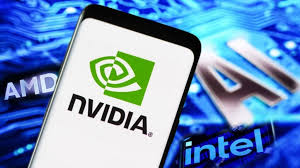
China Raises Concerns Over Potential Security Risks in Nvidia's H20 Chips

 :
| Updated On: 31-Jul-2025 @ 2:29 pm
:
| Updated On: 31-Jul-2025 @ 2:29 pmSHARE
China has raised concerns over the potential security risks associated with Nvidia’s H20 artificial intelligence (AI) chip, creating uncertainty about the U.S. tech giant’s future sales prospects in the Chinese market. These concerns emerged just weeks after the U.S. lifted an earlier export ban on the chip. The Cyberspace Administration of China (CAC), the nation’s top internet watchdog, expressed apprehension regarding a U.S. proposal mandating that advanced AI chips exported abroad include tracking and positioning features. This requirement aims to limit China’s access to sensitive U.S. semiconductor technology.
In response to these concerns, CAC summoned Nvidia to a meeting to clarify whether the H20 chip includes any backdoor mechanisms that could compromise the privacy and data rights of Chinese users. While Nvidia has yet to respond to media inquiries, the company's ongoing challenges highlight its precarious position amid the tense U.S.-China tech rivalry.
Nvidia developed the H20 chip specifically for the Chinese market in response to U.S. export restrictions implemented in late 2023. These measures barred the export of advanced AI chips to China, prompting Nvidia to design modified chips that could comply with the new rules while still being marketable in China. However, the CAC’s recent inquiry suggests that even these modified chips are not free from scrutiny.
U.S. political pressure on the chip industry remains strong. In May, Senator Tom Cotton introduced legislation aimed at tightening export controls further by requiring AI chips to have location-verification mechanisms. The bill is part of broader U.S. efforts to prevent the Chinese military and research institutions from accessing cutting-edge American technology.
Despite this geopolitical friction, demand for Nvidia’s AI chips in China remains robust. The chips are widely used by Chinese tech firms, military agencies, state-backed AI institutes, and universities. In response to the strong demand, Nvidia recently placed an order with contract manufacturer TSMC for 300,000 H20 chipsets.
Analysts like Charlie Chai of 86Research believe Beijing's warning is mostly symbolic, serving as a counter-response to similar U.S. restrictions, rather than a sign of immediate regulatory crackdowns. Chai noted that while China is actively building its domestic semiconductor capabilities, it still lacks viable alternatives to Nvidia’s technology, which continues to play a vital role in domestic AI development.
This is not the first time China has targeted U.S. chipmakers over national security concerns. In early 2023, it banned critical infrastructure operators from using products made by U.S. memory chipmaker Micron. Industry groups in China have also called for security reviews of Intel’s products, though regulators have not taken formal action.
Adding to Nvidia’s troubles, the company is under investigation by China’s State Administration for Market Regulation over suspected violations of anti-monopoly laws. The probe focuses on whether Nvidia failed to uphold commitments made during its 2020 acquisition of Israeli chip company Mellanox Technologies.
In summary, Nvidia’s position in China is increasingly complex, shaped by high demand, geopolitical tension, and regulatory scrutiny. While it remains a crucial player in the Chinese AI ecosystem, ongoing investigations and security concerns may influence its long-term strategy and operations in the region.